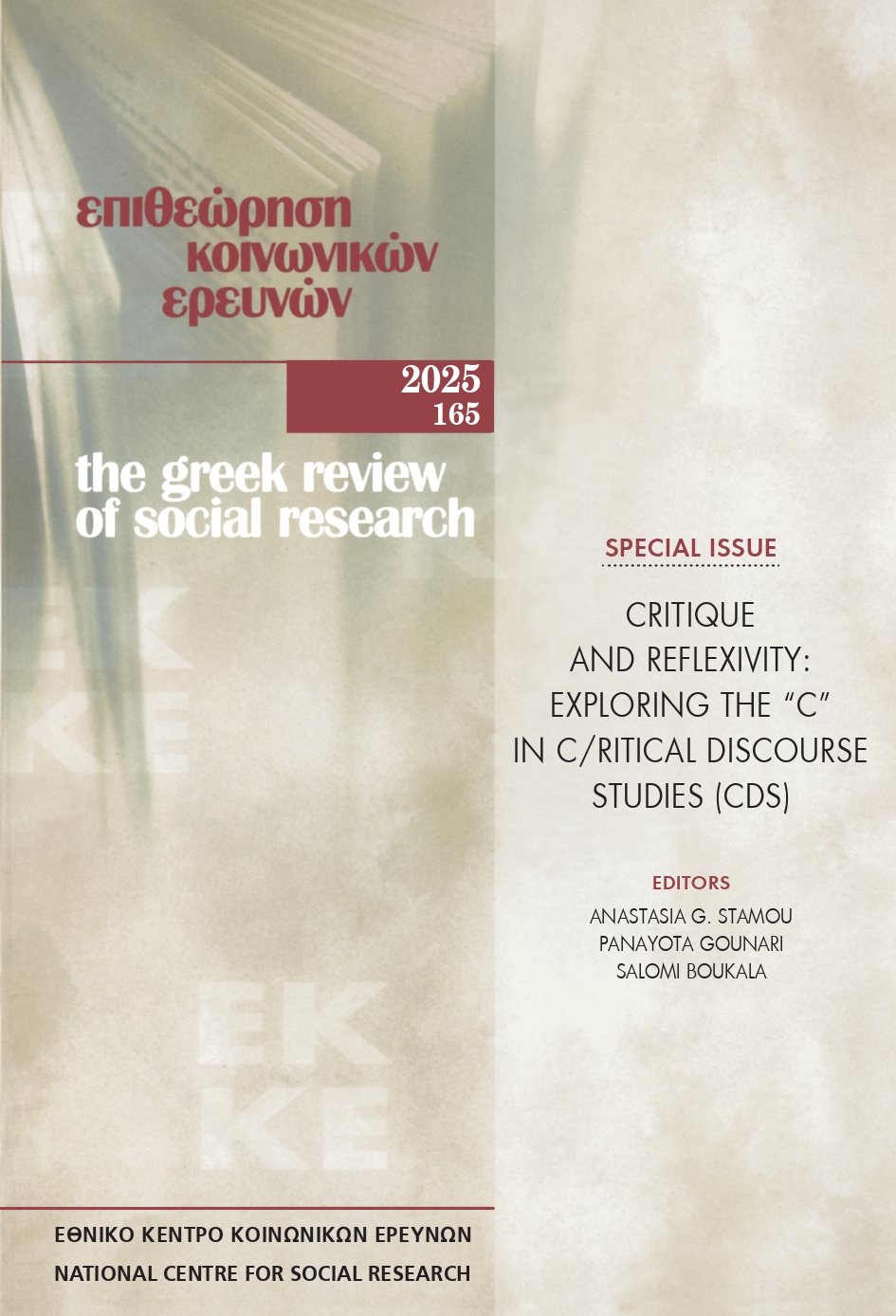Published without interruption since 1969, The Greek Review of Social Research is the leading journal for the social and political sciences. The editorial board consisting of three EKKE researchers and two external social scientists is appointed by EKKE’s Board of Administration for a period of three years and is responsible for the publication procedures and the standards of the Review’s scholarship. The editorial board is supported by a scientific committee whose role is advisory as regards the development and dissemination of the journal. The Greek Review of Social Research is fully open access and has no publication charges, fees, or paywalls.
The journal is proud to be indexed by the following: Scopus (Elsevier), Open Access Scholarly Publishers Association (OASPA), The Directory of Open Access Journals (DOAJ), Google Scholar, Crossref, SHERPA/RoMEO, International Sociological Association (ISA), OPENAIRE: Open Access Infrastructure for Research in Europe (EC-DG INFORMATION SOCIETY and MEDIA), CiteFactor, European Website of Integration, Econbiz database, The Socio Web.
Announcements
Twitter page
2022-01-31
Follow us on Twitter, @greek_reviewCurrent Issue
2025: 165 Special Issue: Critique and Reflexivity: Exploring the “C” in C/ritical Discourse Studies (CDS) Editors: Anastasia G. Stamou, Panayota Gounari, Salomi Boukala

Published: 2025-07-25
Critical Discourse Studies (CDS) stands apart from “non-critical” approaches by not only analyzing the role of language in society, but by examining how and why it is entangled with power relations and ideology. Yet, what constitutes the “critical” in CDS often remains conceptually ambiguous. This Special Issue addresses these ambiguities, focusing on ideology, power, critique, and reflexivity. Bringing together contributions primarily from Greek scholars, it aims to foster reflexive, intertextual dialogue and to advance the academic recognition and institutional presence of CDS in Greece, while also engaging broader questions about its evolving meaning and role in critical scholarship.
Articles
Critique and Reflexivity: Exploring the “C” in C/ritical Discourse Studies (CDS) Introduction: The Editors’ View
Anastasia G. Stamou, Panayota Gounari, Salomi Boukala


